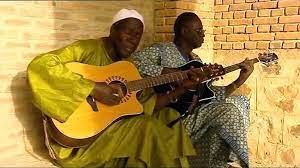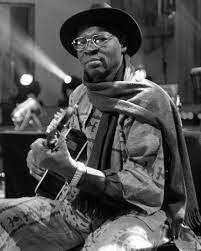Boubacar Traoré and Ali Farka Touré: Pioneers of Malian Music
- ppnhara08
- Jun 29, 2023
- 2 min read

Boubacar Traoré and Ali Farka Touré are two iconic figures in the realm of African music, specifically Malian music. Their immense talent, innovative styles, and dedication to preserving and promoting their cultural heritage have left an indelible mark on the global music scene. This profile delves into the lives, musical journeys, and lasting legacies of these remarkable musicians.
Ali Farka Touré: A Musical Journey through Mali
Born in 1939 in the historic town of Timbuktu, Mali, Ali Farka Touré's musical journey began at an early age. Deeply rooted in his Malian heritage, Touré's music seamlessly blended traditional West African melodies with the soulful sounds of the blues. His virtuosic guitar skills, coupled with his distinctive voice, captivated audiences worldwide.

Touré's music often featured traditional Malian instruments such as the ngoni and the kora, adding a rich and authentic texture to his compositions. His ability to infuse the blues with the rhythms and melodies of Mali created a unique and captivating sound that resonated with listeners across cultures.
Throughout his career, Touré released numerous influential albums, each showcasing his exceptional talent and musical vision. One of his most celebrated works is the Grammy Award-winning album "Talking Timbuktu," a collaboration with American musician Ry Cooder. This groundbreaking album not only introduced Touré's music to a wider audience but also solidified his status as a global music icon.
Boubacar Traoré: The Voice of Mali
Born in 1942 in Kayes, Mali, Boubacar Traoré's musical journey began with his love for the guitar. His distinctive voice, coupled with his exceptional songwriting abilities, quickly set him apart as a unique talent in the Malian music scene. Traoré's music seamlessly blended traditional West African melodies with Latin and Cuban influences, creating a sound that was both familiar and innovative.
Traoré gained international recognition with his album "Mariama," which showcased his soulful voice and heartfelt compositions. This album, along with subsequent releases, solidified his position as a revered figure in African music. Despite taking an extended break from music during the 1990s, Traoré made a triumphant return to recording and performing in the early 2000s, further cementing his status as a musical legend.

The Impact and Legacy:
Both Traoré and Touré played a pivotal role in popularizing Malian music globally. Their contributions have not only influenced countless musicians but have also fostered a deeper appreciation for African music and culture worldwide. Their ability to seamlessly blend traditional African sounds with global influences showcased the universality of music and its power to transcend borders.
Moreover, Traoré and Touré's personal connection and friendship added another layer of significance to their musical contributions. Their mutual respect and admiration for each other's work served as a testament to the collaborative and communal nature of African music.
Boubacar Traoré and Ali Farka Touré's impact on the development of African music cannot be overstated. Their innovative styles, dedication to preserving their cultural heritage, and ability to captivate audiences with their unique sounds have solidified their positions as pioneers of Malian music. Their music continues to inspire and influence musicians around the world, ensuring that their legacies will endure for generations to come.




Comments